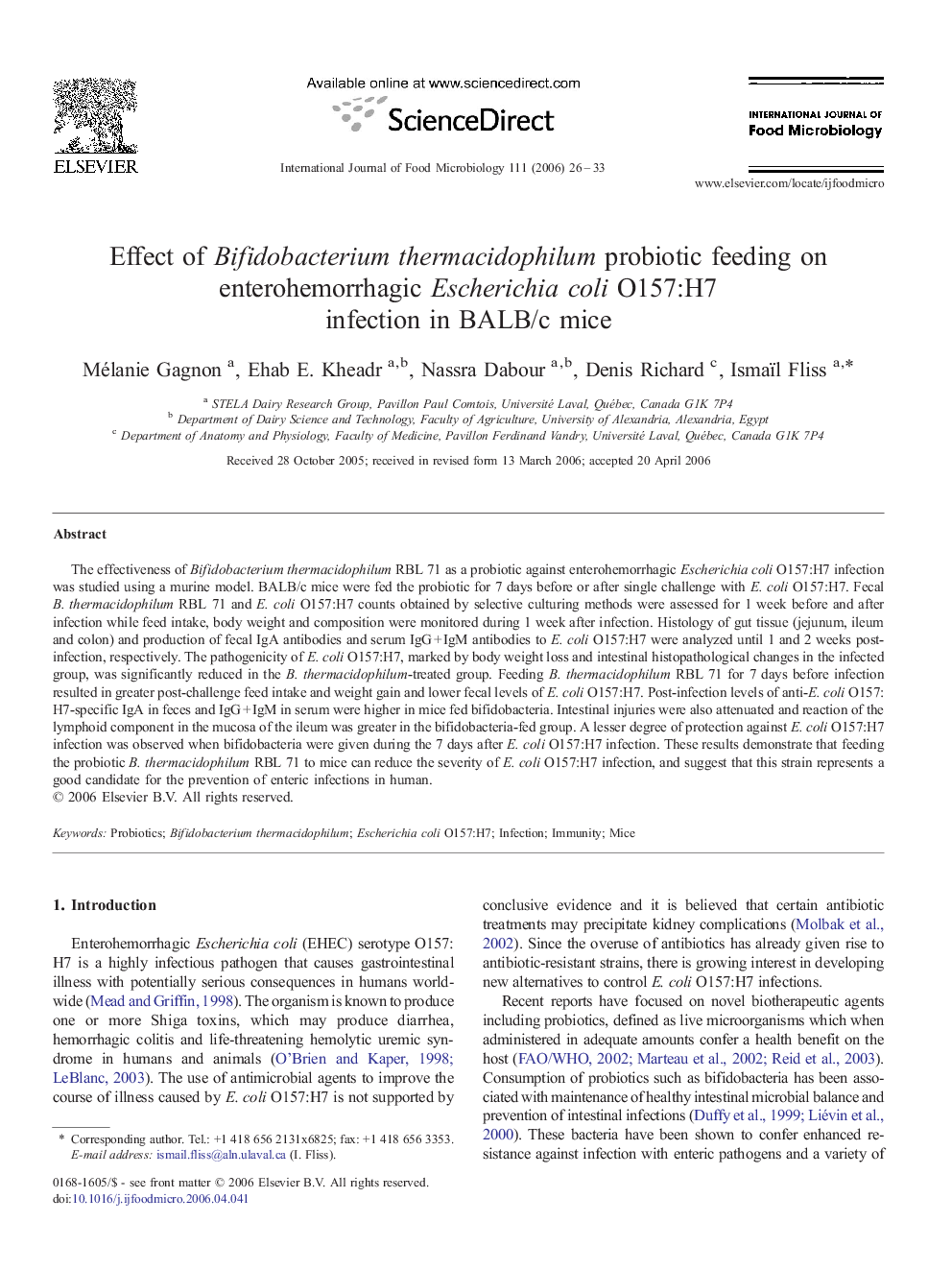| Article ID | Journal | Published Year | Pages | File Type |
|---|---|---|---|---|
| 4370198 | International Journal of Food Microbiology | 2006 | 8 Pages |
The effectiveness of Bifidobacterium thermacidophilum RBL 71 as a probiotic against enterohemorrhagic Escherichia coli O157:H7 infection was studied using a murine model. BALB/c mice were fed the probiotic for 7 days before or after single challenge with E. coli O157:H7. Fecal B. thermacidophilum RBL 71 and E. coli O157:H7 counts obtained by selective culturing methods were assessed for 1 week before and after infection while feed intake, body weight and composition were monitored during 1 week after infection. Histology of gut tissue (jejunum, ileum and colon) and production of fecal IgA antibodies and serum IgG + IgM antibodies to E. coli O157:H7 were analyzed until 1 and 2 weeks post-infection, respectively. The pathogenicity of E. coli O157:H7, marked by body weight loss and intestinal histopathological changes in the infected group, was significantly reduced in the B. thermacidophilum-treated group. Feeding B. thermacidophilum RBL 71 for 7 days before infection resulted in greater post-challenge feed intake and weight gain and lower fecal levels of E. coli O157:H7. Post-infection levels of anti-E. coli O157:H7-specific IgA in feces and IgG + IgM in serum were higher in mice fed bifidobacteria. Intestinal injuries were also attenuated and reaction of the lymphoid component in the mucosa of the ileum was greater in the bifidobacteria-fed group. A lesser degree of protection against E. coli O157:H7 infection was observed when bifidobacteria were given during the 7 days after E. coli O157:H7 infection. These results demonstrate that feeding the probiotic B. thermacidophilum RBL 71 to mice can reduce the severity of E. coli O157:H7 infection, and suggest that this strain represents a good candidate for the prevention of enteric infections in human.
